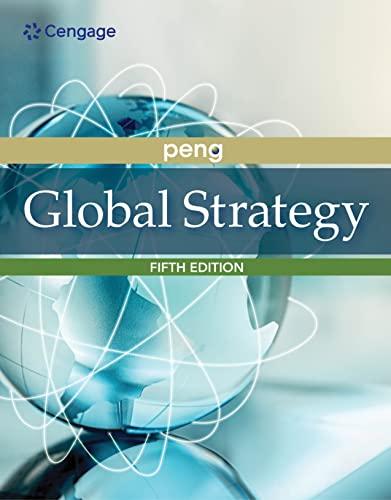Question
Former US President Trump is starting to draft an economic plan for his 2024 presidential campaign. He wants to keep the tax cuts implemented by
Former US President Trump is starting to draft an economic plan for his 2024 presidential campaign. He wants to keep the tax cuts implemented by the Trump administration in 2017, the Tax Cuts and Jobs Act (TCJA), and also wants deeper tax rate cuts for corporations and individuals.TCJA had reduced the corporate rate from 35% to 21%, many arguing that a decrease in the corporate tax rate would spur a boom in investments that would increase worker productivity, such as new factories or equipment. These investments would then increase economic output, and workers would be able to reap the benefit by bargaining for higher wages. It has been argued that the TCJA has economically benefited some large corporations by allowing them to avoid paying taxes. For example, Deere and Co., which was started in 1837 by blacksmith John Deere, who made farming plows, reported earning $2.15 billion in U.S. income before taxes. It owed no U.S. taxes in 2018 but reported that it was instead owed $268 million from the government due to deductions and credits granted by the tax code. The company reported global profits of $2.37 billion.
Regarding the economic windfall, a Deere and Co. employee said, "Everyone should pay their fair share whether it is an individual or a corporation. If just the small individuals are paying it without large corporations doing their part, I don't see that being fair." This statement reflects the tradeoff of equity versus efficiency. The TCJA extended tax cuts for households. Specifically, it increased the standard deduction from $6,500 to $12,000 for individual filings, from $13,000 to $24,000 for joint filings, and from $9,550 to $18,000 for heads of households. These increases in deductions are intended to reduce the income that is taxable, which means households potentially pay relatively less income taxes. Furthermore, the TCJA increased the child tax credit from $1,000 to $2000 per child under the age of 17 and added a $500 credit for children ineligible for the $2,000 credit. The current TCJA policy is set to expire on December 31, 2025. According to a prominent tax policy think tank, if TCJA policy, not including any changes proposed by Trump if he were to be elected as president, is permanently extended then the Federal government budget deficit would increase by more than $3 trillion.
Typically, a large share of government debt is paid down by households through income taxation. Analyze the possible implications of Trump's potential proposal, which is to further reduce the corporate income tax rate. What would be the consequences for equity if economic efficiency were to rise or fall. Or, you can argue that there will be a small net effect. Also discuss the incidence of the tax cut. For example, will a tax cut be passed on to workers in the form of higher pay? Or, will it be absorbed by the corporations in the form of increased corporate profits? Give pros and cons to both. In any case, make an argument as to whether investment in the US will increase or decrease.
Step by Step Solution
3.46 Rating (156 Votes )
There are 3 Steps involved in it
Step: 1
Analyzing the implications of Trumps potential proposal to further reduce the corporate income tax rate we can expect the following consequences Equity If the corporate tax rate is reduced large corpo...
Get Instant Access to Expert-Tailored Solutions
See step-by-step solutions with expert insights and AI powered tools for academic success
Step: 2

Step: 3

Ace Your Homework with AI
Get the answers you need in no time with our AI-driven, step-by-step assistance
Get Started


